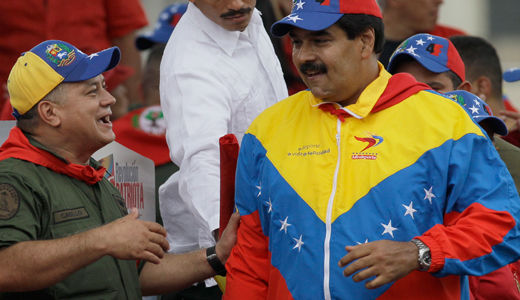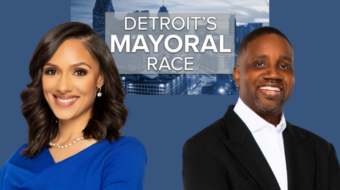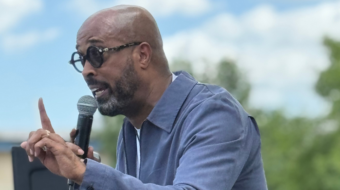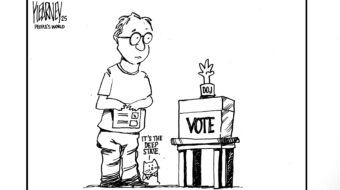
Venezuelans go to the polls Sunday to vote in the special presidential election required by the Venezuelan constitution to replace President Hugo Chavez, who died of complications of cancer at the beginning of March.
No campaigning will be allowed on Friday, Saturday and Sunday so there were intense dueling rallies and marches earlier this week. President Chavez’s “Bolivarian” standard is carried by Acting President and former Vice President Nicolas Maduro, supported by the United Socialist Party of Venezuela (PSUV), the Communist Party of Venezuela (PCV) and six other political parties. The candidate of the opposition M.U.D (Table for United Democracy) is wealthy right-wing businessman Henrique Capriles Rodonski, who is currently governor of Miranda state. Maduro promises a continuation of Chavez’s policies. Capriles calls for a cut off of discounted Venezuelan oil to Cuba and other poor countries in the region, among other things.
Public opinion polls are showing Maduro with a solid lead of at least 11 percentage points. The strategy of the opposition appears to be to accept that Capriles will lose, but to question the legitimacy of the election and call for U.S. pressure to somehow have the results overturned, or to strengthen opposition to Maduro going forward.
Ultra-rightist political figures from the United States appear to be working with people connected to the Capriles’ candidacy to achieve this. The president of the Venezuelan Parliament, Diosdado Cabello of the PSUV, has revealed intelligence information which strongly suggests a plan for Capriles to not recognize the election.
Furthermore, on April 10, Foreign Minister Elias Jaua stated that right-wing mercenaries have been sent to Venezuela from Central America. One of the people named is David Koch Arana, a retired Salvadoran colonel who has connections to Cuban exile terrorist Luis Posada Carriles and to Roberto D’Aubuisson Jr., son of the ultra right Salvadoran leader who is generally considered to be responsible for much violence in the Salvadoran Civil War, including the murder of Archbishop Oscar Romero in 1980. In recorded conversations, Koch and D’Aubuisson appear to be talking about disruptive actions on election day, to be coordinated with the Capriles campaign.
Assuming that Maduro will win, the question will be what will be the reaction of the U.S. government. President Obama had been frosty to Chavez, not congratulating him on his December 2012 election win, nor sending a sympathy message upon his death. People in the United States get a very skewed picture of the situation in Venezuela from our media, even supposedly “liberal” sources such as NPR, the New York Times and the Washington Post. Yet objective statistics on quality of life in Venezuela show that Chavez’ government can claim many advances for poor and working people. That is why so many will vote for him.
It behooves all progressive people in the U.S. to reject the negative spin on Venezuela and to speak out against any U.S. interference, and especially against support for the right wing elements that are bent on thwarting the will of Venezuelan voters.
Photo: Vice president Nicolas Maduro is the United Socialist Party of Venezuela’s candidate running to replace Hugo Chavez. He is seen here with Diosdado Cabello, president of Venezuela’s National Assembly. Ariana Cubillos/AP










